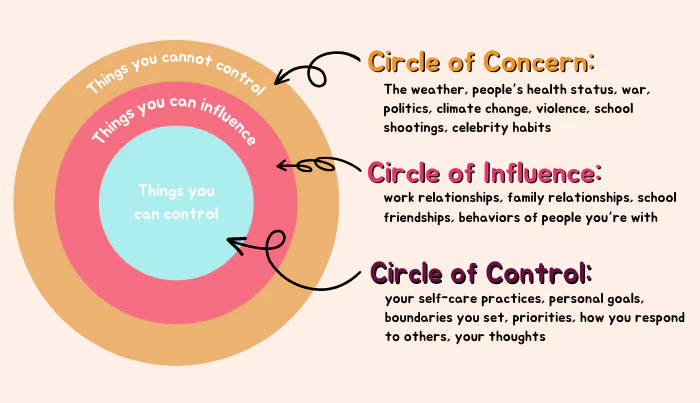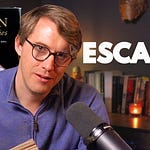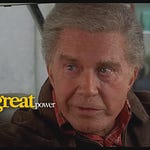Perhaps my favorite thing about doing this newsletter is when I’m going about my own business and stumble upon connections to what this project is all about. The other day while I was scrolling through Twitter, just looking for trouble as one does on that platform, an account called MiddleEarthMixr tweeted this wonderful quote from The Lord of the Rings: Return of the King. I glanced at it and almost scrolled by, but then I stopped to see if I could determine what it meant.
Gandalf the White is in the company of Aragorn and the sons of Elrond when they are joined by Prince Imrahil of Dol Amroth. They are discussing what will happen if the Ring of Power is destroyed and Middle Earth is rid of Sauron. Gandalf makes a remark that leaps from the page as a reminder to think bigger about our role in making good of our time in this world.
“Other evils there are that may come; for Sauron is but a servant or emissary. Yet it is not our part to master all the tides of the world, but to do what is in us for the succour (support) of those years wherein we are set, uprooting the evil in the fields that we know, so that those who live after may have clean earth to till. What weather they have is not ours to rule.”
- Gandalf, The Lord of the Rings: Book V: The Last Debate
Sauron is neither the beginning nor the end of evil. He is just the latest incarnation of it. Be ready for more challenges after this one.
But even so, part of The Lord of the Rings' guiding ethos is that while there are very real gargantuan struggles between good and evil in the world, sometimes the nature of doing tangible good is to simply manage your own realm with integrity — to tend to your own garden, if you will. I mention a garden for a specific reason, which is because a garden creates value and brings life. If I were to say this means, “to stay in your lane” that is just a free license to ignore what is not your immediate problem. To be selfish.
Focus on what you do, in fact, control and do good for future generations within your realm of influence.
“It is not our part to master all the tides of the world,” Gandalf says.
You have no dominion over war breaking out in Europe or the Middle East. You alone do not have the ability to affect change in the climate of planet Earth, despite what some may tell you. For if you were to somehow lower your own net carbon emissions to zero, and your neighbor increases theirs, nothing has been done. This of course happens every day somewhere in the world. While some brilliant minds toil away on ways for humanity to adapt to a changing climate, others are working on ways to control or influence the weather using technology. What could go wrong?!
Gandalf goes on, “- but to do what is in us for the succour (support) of those years wherein we are set, uprooting the evil in the fields that we know.”
The White Wizard is saying that since we cannot control all that occurs in the world, we must find the strength to do what we can in the time we’ve been born into. Or more simply put, to make the best of circumstance. Your job is not to eliminate all evil in the world, which would be to play a game of eternal whack-a-mole, but instead to rip out of the roots of evil in the space you know well. Your community, your profession, your own heart.
Are you an educator? Focus on lasting reforms to education, not on the military affairs of the South China Sea. Are you in marketing? Pour your energy into being a better marketer, not micromanaging the job of a lackluster colleague in the finance department. That battle is for the person in charge of the finance department. Are you a parent concerned with what your child is learning or not learning in school? We hear about this one a lot. Perhaps it is time to educate your child, yourself.
That is not to say you don’t try to improve systems. You should fight for a future in which say, the education bureaucracy is more responsive to parents and the needs of children, but that fight will take longer than the time you have with your child at home. Your first duty is to raise a virtuous and well-rounded kid. The battle against crap you don’t like must come second.
Gandalf concludes by saying “uprooting the evil in the fields that we know….so that those who live after may have clean earth to till. What weather they have is not ours to rule.”
Precisely. So that those in the future, our posterity, may not have to pull the same weeds that you had to pull from the garden. You rip them out and should then strengthen the walls of the garden. You have a responsibility to try. Nevertheless, future generations may face way worse things than weeds and bad soil. They may face floods or wildfires, so powerful that your work can not protect them. That will be their challenge to overcome.
This is a message about Responsibility, folks. Bad things will always exist, but if your only response to that fact is to protest the bad things, update your profile picture, or wave handwritten signs at the bad things, instead of actively creating good things in response, you’re not bringing balance to the world. You’re not helping.
Background for this idea
Within Stoic philosophy, which served as the bedrock of modern-day Cognitive Behavioral Therapy (CBT), this idea plays out with the concept of circles of control. As Epictetus is known to have said, “It's not things (or events) that upset us, it's our judgment about things (and events) that upsets us.”
Related to what Gandalf is saying, we cannot control all things. We control response. And if you get set on the idea that you’re going to stop negative future events from ever occurring, you’ll be set up for a life of anxiety and disappointment. Do what you can, where you can.












